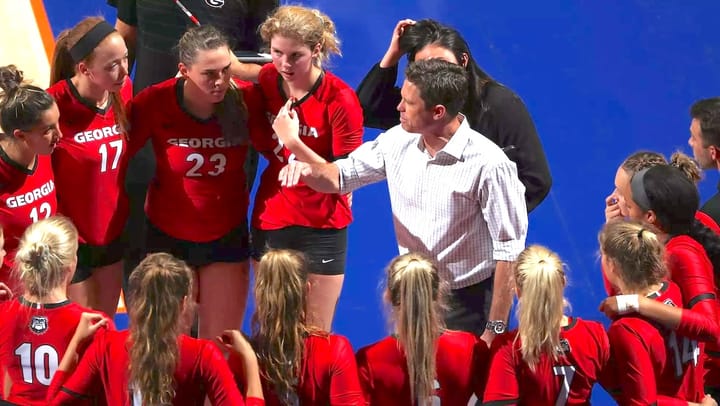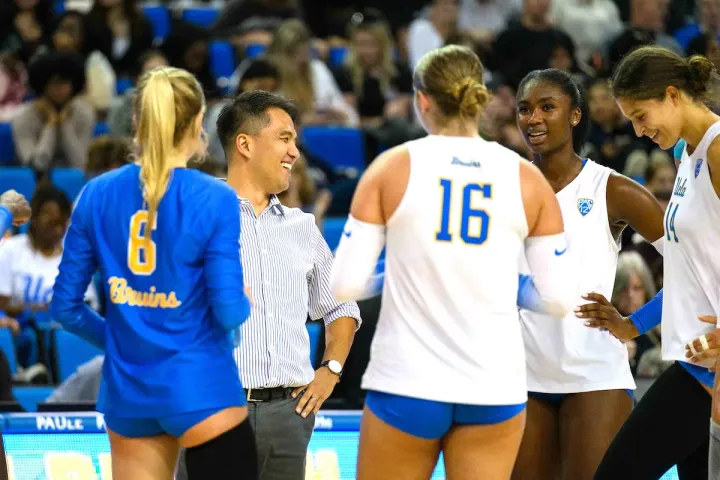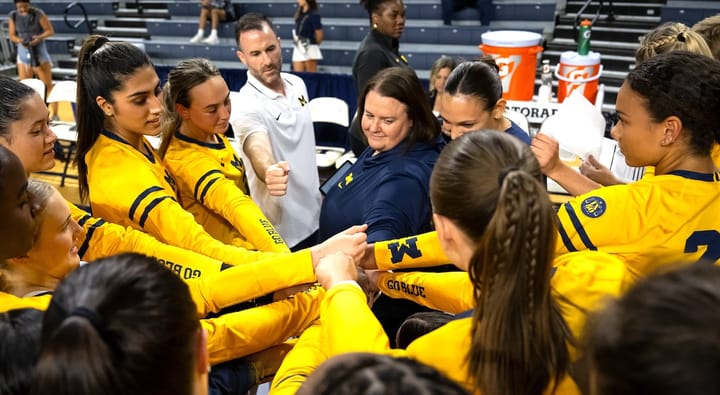51. Kevin Hambly: It's all about the players. It's all about them.
In this Masterclass we feature Kevin Hambly, the head coach of Stanford's women's volleyball team. Under Kevin, Stanford has won multiple conference titles and the NCAA Championship in 2018 and 2019. Under his leadership, 10 players became AVCA All-Americans.
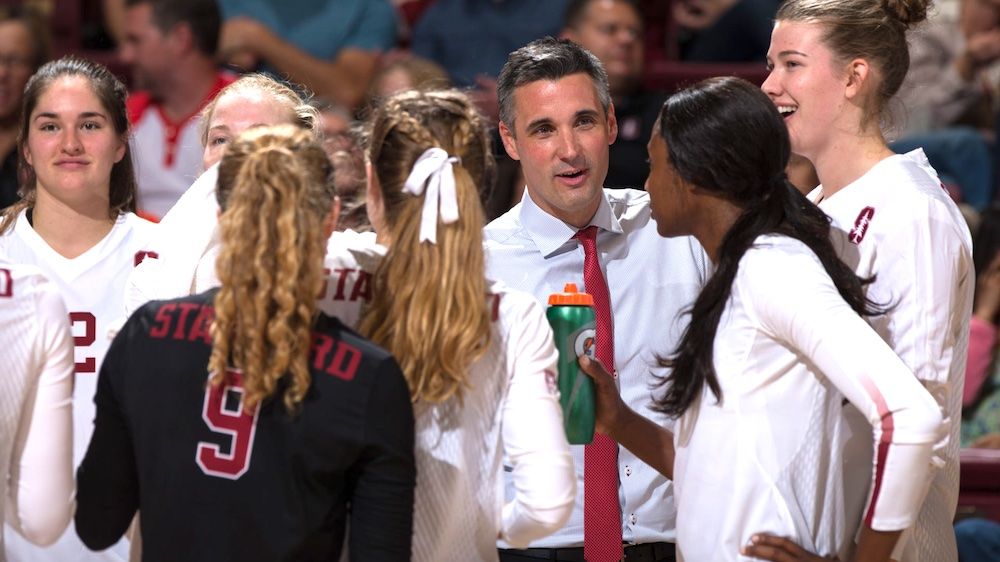
Having been part of Team USA's coaching staff and having coached players toward pro careers, he also has a great insight into international volleyball's past and present.
Kevin goes over a lot in this Masterclass:
- How he instills team culture at Stanford
- How he stays ahead of the curve of where the game is going
- What his biggest failures were and what he learned from them
- His view on recruiting, past versus present
- and so, so much more
17 edited and subtitled clips in this 7350-word Masterclass.
Enjoy!
Kevin, why did you decide to commit to being a volleyball coach? What pushed you towards that decision?
When I first knew I wanted to be a volleyball or a coach, period... was when I was 16 years old. I played basketball. And I was working a little clinic with 12, 13 year old boys. Teaching 'em how to shoot, teaching 'em how to play. And I just got hooked on teaching and watching people progress. I love that.
The reason I got into volleyball was, I decided late to not be a basketball player, because I knew I wanted to be a volleyball coach.
I chose the school that I wanted to play for very, very carefully. I wanted to make sure I was around a really good teacher and someone that I could learn the game from and was willing to take that on. And so I chose Carl McGown, who is regarded as one of the great trainers in the United States.
He was a motor learning professor, this is way before Gold Medal Squared, at that point, he was just a motor learning teacher. When he talked about teaching, it really resonated with me.
And I ended up coaching club right after my freshman year of college. I was coaching 16 and under as a freshman in college. So kids just two years younger than me, and I even ended up playing with a couple of those guys in college.
So right away, once I had an opportunity to start coaching, I started to get reps.
I started to go out to as many camps and clinics as I could, and I started to get reps.
I kind of knew, kind of inherently, that that's just what I wanted the minute I hit college as an 18 year old.
I started to play pro, but once I got into it, it didn't have as much value to me like teaching and coaching did.
Having played on a collegiate team, the professional ranks just seemed like everyone was out for themselves. And that just didn't resonate with me. I wanted to kind of get back to coaching. So I turned down a contract in Argentina. Started coaching at 23 years old, and I've gotten a paycheck from coaching volleyball ever since.
So coaching little kids is what set it off. But then the more I got into it, the more I loved it.
My motivations for coaching have changed, obviously. But that's why I got into it.
What advice would you give yourself as a starting coach? An advice that is so clear and logic for you now, but that you had to develop over the years.
This is never about you. This coaching profession is never about you.
I think when I was young, my identity as a coach was wrapped up in the performance of the players. If the team was not doing well, that meant I was not doing well.
And the problem with that is then: my response to them not performing well was about fight or flight.
There's some players that I coached when I was young that I, every time I see 'em, I still apologize because my behavior wasn't okay.
I was trying to control them instead of guiding them. Instead of inspiring them. Instead of creating a level of collaboration.
And I am not embarrassed to admit it, because I think a lot of coaches go through that. But I'm embarrassed of those times because I think, I knew nothing about what I was doing.
A lot of coaches say that same thing. Then the next question is of course. When did it click?
I think one of the things I have been pretty good about. It's hard to say this. But I think a part is self-reflection. Not just self-reflection, but like, Hey, are you doing a good job?
And never feeling like I am a complete product. That I still have more to learn. And still need to learn from every season, every moment.
I'll go back and watch this conversation even to see if I can be better at communicating.
I'm just constantly trying to be better.
So I think I was pretty good about that even early. I just paid attention to what was going on and how the team was responding. And if they weren't responding how I wanted, why was that? I started evaluating my own behaviors.
But when it really clicked, was when I was with the USA women's team.
When I was with the team from 2001 to 2004. You're traveling and you're talking to the athletes. Talking to 'em about their college experience.
Cause I had a feeling that I wanted to get back into that and not go professional. I liked that age group a lot.
So I was curious what their experiences were like. And what they liked and disliked.
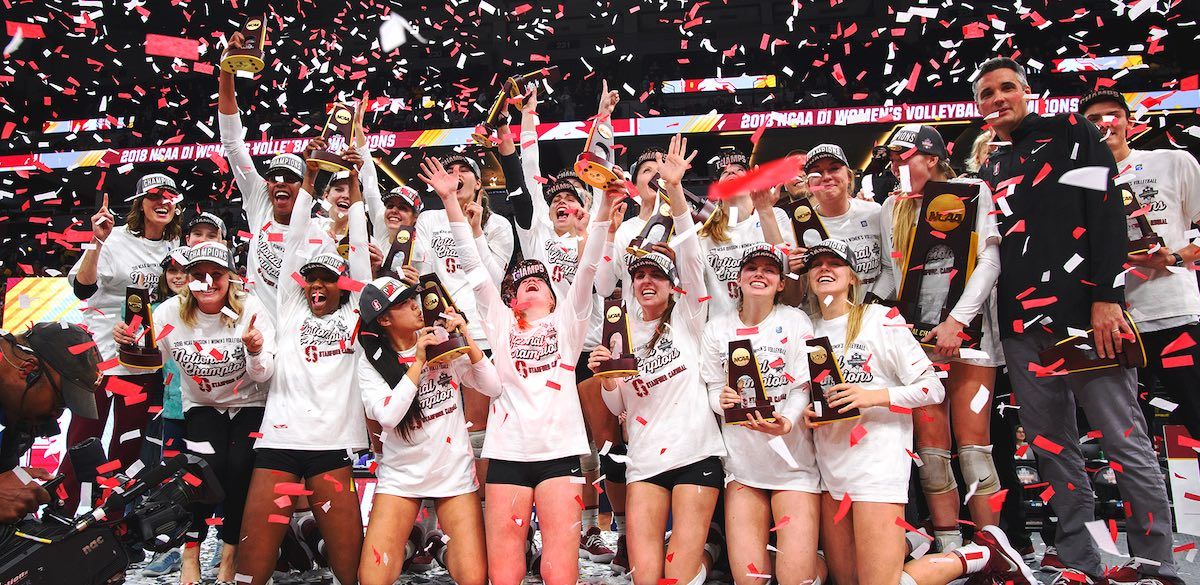
Many of 'em just felt like it was about the coaches. Many of 'em felt like they were being used up. That they were just a product. That it was very transactional.
They're players of the year, all Americans. And they're pretty miserable in their whole time in college.
And I'm like, we can do this better. I can figure this out. I can solve this.
So I just asked 'em a million questions about what they liked and didn't like. And then from there I really started to, in my mind, shape who I wanted to be. Especially as a collegiate university head coach.
But that was what kind of shaped my coaching philosophy at that point.
I'm not sure it was that solidified. But at least the concepts of what and how I wanted to approach coaching.
What are bad recommendations you hear about coaching or training volleyball?
I think what's really interesting to me is that there's people that are teaching things because they were told "this is how it should be taught".
But they've never actually looked at it. And paid attention to actually are the top players doing these things?
They went to some clinic or they heard some coach talk about it and this guy has taught it because he's heard it. And historically that's just been passed down. And they've never really evaluated that. They never even watched the top players.
And a lot of 'em will even reference, this is what the top players in the world are doing.
And they'll tell me that. And I'm like, are you watching the top players in the world? I see them doing nothing like what you're talking about. I see quite the opposite in some cases.
You need to reflect on the game and put time in to pay attention to what the top players are doing. What are the innovations in the game. Where's the game moving.
The techniques have evolved because the game's evolved. I think passing's changed a lot. Serving's obviously changed a lot. I think blocking and out of system offense has been drastically changed in the last 10 years.
But I hear people talk about the game and they're still saying the same things that were said 20 years ago. And referencing it, like it's what the top players in the world do.
So I think that's a dangerous way to go about it.
Or there's things that they're teaching that they've heard that are not even bio-mechanically sound, that are actually dangerous for athletes.
Dangerous, that they're gonna have overuse injuries. I heard one coach say, "drive your elbow up like this". And anyone that understands arm swing mechanics knows if your scapula comes off your spine like that, that you're putting your shoulder at risk.
But there's still people that are teaching that. And that's being passed around without a question, without a thought. Because I heard this coach who's supposed to be this very good coach in this area, or this college or this, whatever, say this.
And they've never questioned it. Because I'm not gonna challenge authority.
So I don't know if that's exactly what you're asking, but that's something that frustrates me or bothers me a great deal.
Do you have a particular goal? Maybe a goal that you already reached or a goal that is so hard to reach that it gives you daily motivation?
I guess I have two kind of goals.
